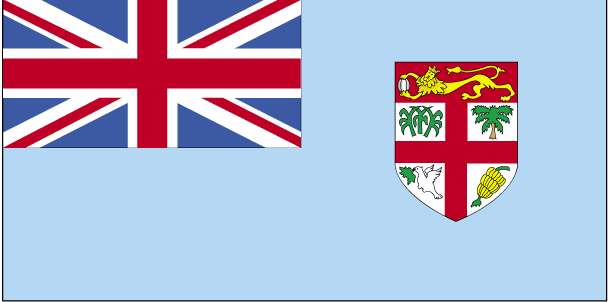 Location: The island group of Fiji belongs to the Oceania Group of islands in the South Pacific and lies about two-thirds from Hawaii to New Zealand. The geographical coordinates of Fiji are 18 00 S, 175 00 E.
Location: The island group of Fiji belongs to the Oceania Group of islands in the South Pacific and lies about two-thirds from Hawaii to New Zealand. The geographical coordinates of Fiji are 18 00 S, 175 00 E. Area: Fiji covers about 1.3 million square kilometers of the South Pacific Ocean. Fiji's total land area is 18,333 square kilometers.
Area-Comparative: Comparatively, the area occupied by Fiji is slightly smaller than the state of New Jersey.
Land Boundaries: 0 Km
Climate: tropical marine; only slight seasonal temperature variation and nice warm weather throughout the year
Terrain: mostly mountains of volcanic origin
Natural Resources: timber, fish, gold, copper, offshore oil potential, hydropower, & water
Land Use:
arable land: 10.95%
permanent crops: 4.65%
permanent pastures: land permanently used for herbaceous forage crops
forests and woodland: land under dense or open stands of trees
other: 84.4%
Environment-Current Issues: The most pressing and important environmental problems are
deforestation; soil erosion
Environment-International Agreements: Party to : Biodiversity, Climate Change, Climate Change-Kyoto Protocol, Desertification, Endangered Species, Law of the Sea, Marine Life Conservation, Ozone Layer Protection, Tropical Timber 83, Tropical Timber 94
Signed, but not ratified : none of the selected agreements
Natural Hazards: cyclonic storms can occur from November to January
